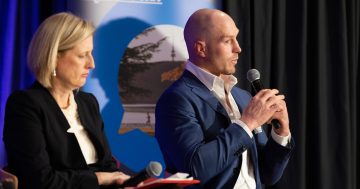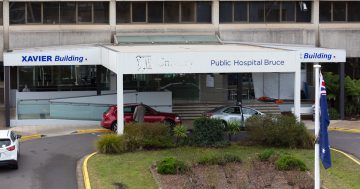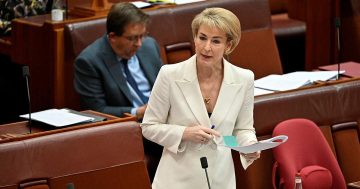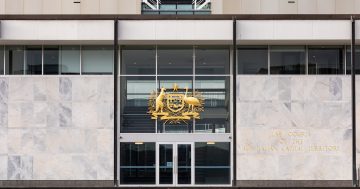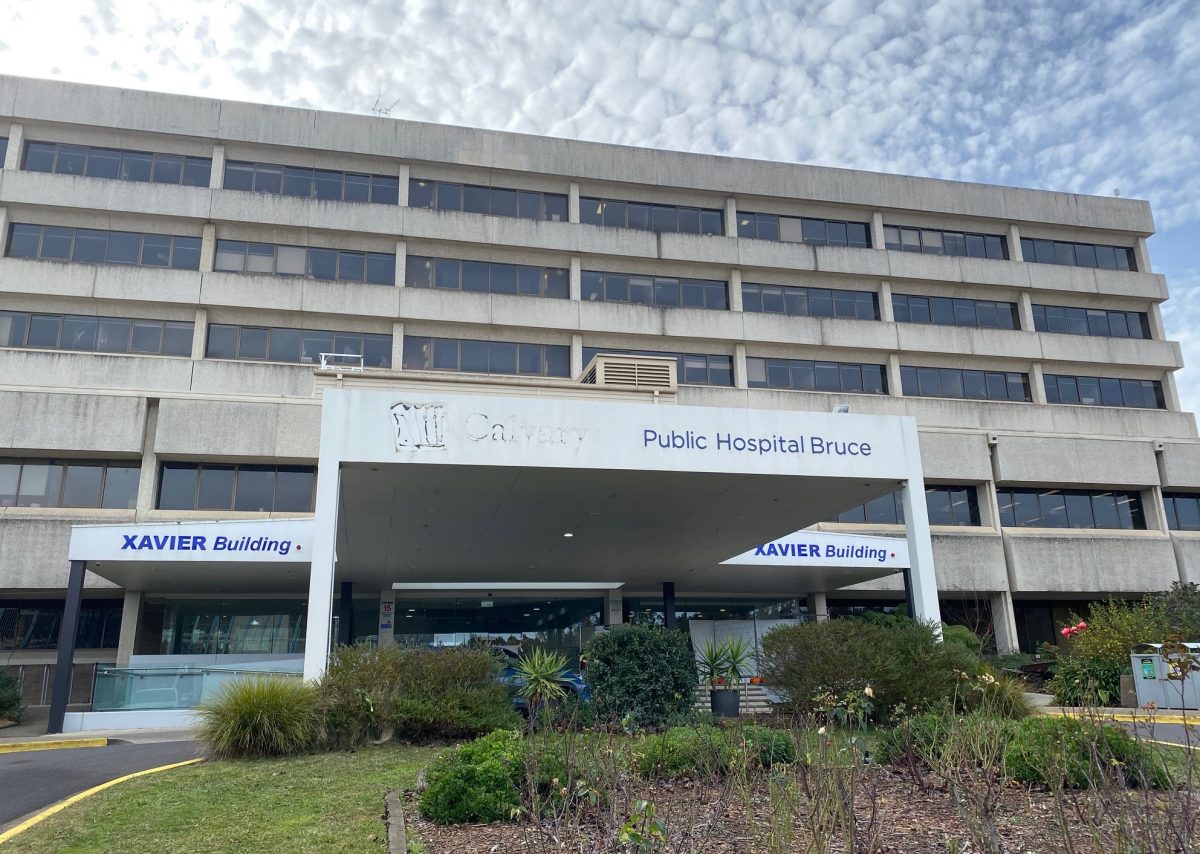
Calvary Public Hospital Bruce officially became North Canberra Hospital under the control of the ACT Government on 3 July. Photo: Claire Fenwicke.
The Senate has voted down Queensland Liberal National Senator Matt Canavan’s bill that would have forced the ACT to conduct an inquiry into the compulsory acquisition of Calvary Public Hospital Bruce.
The majority voted against the Australian Capital Territory (Self-Government) Amendment Bill 2023 being read a second time on Tuesday (13 September).
After a heated debate, Labor, the Greens and ACT Senator David Pocock voted down the bill 32 votes to 26.
“The nurses, doctors and patients of the Calvary Hospital deserve better treatment,” Senator Canavan said after the vote.
“The ACT Government has cynically hidden behind Territory rights to deny the people their rights.
“Unfortunately, Labor, Greens and the ACT Senator David Pocock voted against Canberrans having their say at a proper inquiry, but I will keep fighting to highlight the mess that the ACT Government has created through this decision.”
Senator Canavan told the Senate that “we have seen unprecedented use of onerous government powers here in the ACT over the past few months” and criticised the ACT Government for “rushing” the legislation through the Assembly and for the “clandestine way” in which the acquisition was carried out.
“Just six weeks notice was given to the Calvary Public Hospital, despite the fact that they had been a valued partner in the ACT providing health services for more than 50 years. This behaviour, this conduct, deserves to be called out. It deserves to be called out so that we don’t see it repeated in this country,” he said.
Queensland One Nation Senator Malcolm Roberts called the acquisition a “blatant attack on religion in health care”.
“This issue is a clash between religious principles that stand against abortion of a living viable fetus and health bureaucrats that would kill such a fetus, a human. It’s a clash between religious principles that stand against ending life through euthanasia of a person, who may make a different decision free from coercion and momentary despair, and health bureaucrats seeking to use euthanasia as a device to balance their budget,” he said.
“Federal parliament has precedence over ACT law. This matter is rightly within the Senate’s purview and I am strongly in support of this bill. I said this before and I’ll say it again: my message to Canberra health autocrats is God decides who lives or dies, not you.”
Victoria Labor Senator Linda White argued that, as a matter of principle, the Federal Parliament and the Senate should not interfere with the ACT’s self-government or undermine its independence.
“The ACT was granted self-government in 1988. It is my view that from that point on it became inappropriate for the Commonwealth to cherry-pick issues that the elected parliament in the ACT could legislate on,” she said.
Senator White called the bill a “political stunt for the Nationals to dog whistle and whip up debates which highlight alleged religious divisions”.
“The ACT Government’s decision is not part of a wider plot to undermine religious freedom in Australia. It was a government decision which would have been taken had the administrators of the hospital been based in faith or not,” she said.
WA Greens Senator Jordon Steele-John said the acquisition had been made into an issue by the Liberals and argued the bill was intended to “incite some kind of fear campaign”.
“So the ACT Liberal Party, working together with their mates in here, are trying to make this into an issue,” he said.
“They tried to run this campaign to try to give them something to talk about. It was absolutely nonsense! I’m proud to be here as a member of a party that is willing to call it out, and I will attempt to drag this conversation back to the substance of what is actually occurring in the ACT.”
ACT Senator David Pocock echoed concerns the bill will impact the ACT’s right to self-government.
“This bill is an attack on territory rights. The people of the ACT fought for 25 years to have the Andrews bill overturned, which went through on the voices last year. There was unanimous support from the Senate to allow the ACT to debate and make laws that affect them,” he said.
“I will not be supporting this bill and I urge my colleagues to not turn their backs on territory rights after we have just finally got them back.”















